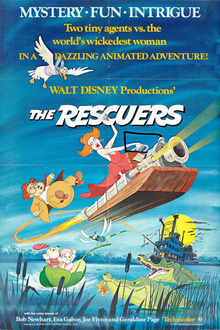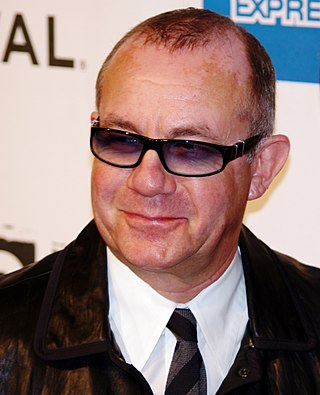
Norma Deloris Egstrom, known professionally as Peggy Lee, was an American jazz and popular music singer, songwriter, composer, and actress, over a career spanning seven decades. From her beginning as a vocalist on local radio to singing with Benny Goodman's big band, Lee created a sophisticated persona, writing music for films, acting, and recording conceptual record albums combining poetry and music. Called the "Queen of American pop music," Lee recorded over 1,100 masters and composed over 270 songs.

Louis Leo Prima was an American trumpeter, singer, entertainer, and bandleader. While rooted in New Orleans jazz, swing music, and jump blues, Prima touched on various genres throughout his career: he formed a seven-piece New Orleans-style jazz band in the late 1920s, fronted a swing combo in the 1930s and a big band group in the 1940s, helped to popularize jump blues in the late 1940s and early to mid 1950s, and performed frequently as a Vegas lounge act beginning in the 1950s.

The Rescuers is a 1977 American animated adventure comedy-drama film produced by Walt Disney Productions and released by Buena Vista Distribution. It is the 23rd Disney animated feature film. Bob Newhart and Eva Gabor respectively star as Bernard and Bianca, two mice who are members of the Rescue Aid Society, an international mouse organization dedicated to helping abduction victims around the world. Both must free young orphan Penny from two treasure hunters, who intend to use her to help them obtain a giant diamond. The film is based on a series of books by Margery Sharp, including The Rescuers (1959) and Miss Bianca (1962).

Bernard John Taupin is an English-American songwriter, lyricist and visual artist. He is most well known for his songwriting partnership with Sir Elton John, recognised as one of the most successful partnerships of its kind in history. Taupin is behind the majority of John's music, dating back to the 1960s.

David Daniel Rose was a British-born American songwriter, composer, arranger, pianist, and orchestra leader. His best known compositions were "The Stripper", "Holiday for Strings", and "Calypso Melody". He also wrote music for many television series, including It's a Great Life, The Tony Martin Show, Little House on the Prairie, Highway to Heaven, Bonanza, Leave It to Beaver, and Highway Patrol, some under the pseudonym Ray Llewellyn. Rose's work as a composer for television programs earned him four Emmys. In addition, he was musical director for The Red Skelton Show during its 21-year run on the CBS and NBC networks. He was a member of Phi Mu Alpha Sinfonia, the national fraternity for men in music.

Roger Dean Miller Sr. was an American singer-songwriter, widely known for his honky-tonk-influenced novelty songs and his chart-topping country hits "King of the Road", "Dang Me", and "England Swings".

Alan Irwin Menken is an American composer, pianist, music director, and record producer, best known for his scores and songs for films produced by Walt Disney Animation Studios. Menken's music for The Little Mermaid (1989), Beauty and the Beast (1991), Aladdin (1992), and Pocahontas (1995) has each won him two Academy Awards. He also composed the scores and songs for Little Shop of Horrors (1986), Newsies (1992), The Hunchback of Notre Dame (1996), Hercules (1997), Home on the Range (2004), Enchanted (2007), Tangled (2010), and Disenchanted (2022), among others. His accolades include winning eight Academy Awards — becoming the second most prolific Oscar winner in the music categories after Alfred Newman, a Tony Award, eleven Grammy Awards, seven Golden Globe Awards, and a Daytime Emmy Award. Menken is one of eighteen people to have won an Emmy, a Grammy, an Oscar and a Tony. He is one of two people to have won a Razzie, an Emmy, a Grammy, an Oscar, and a Tony ("REGOT").
Mack David was an American lyricist and songwriter, best known for his work in film and television, with a career spanning the period between the early 1940s and the early 1970s. David was credited with writing lyrics or music or both for over one thousand songs. He was particularly well known for his work on the Disney films Cinderella and Alice in Wonderland, and for the mostly-English lyrics through which Édith Piaf's signature song "La Vie en rose" gained much of its familiarity among native speakers of English.

Mortimer Shuman was an American singer, pianist and songwriter, best known as co-writer of many 1960s rock and roll hits, including "Viva Las Vegas". He also wrote and sang many songs in French, such as "Le Lac Majeur", "Papa-Tango-Charly", "Sha Mi Sha", "Un Été de Porcelaine", and "Brooklyn by the Sea" which became hits in France and several other European countries.
William Everett Strange was an American singer, songwriter, guitarist, and an actor. He was a session musician with the famed Wrecking Crew, and was inducted into the Musicians Hall of Fame and Museum as a member of The Wrecking Crew in 2007.

"There's Got to Be a Way" is a song recorded by American singer-songwriter Mariah Carey for her eponymous debut studio album (1990). Columbia released it as the fifth and final single from the album only in the United Kingdom on May 20, 1991. It was one of four songs Carey wrote with Ric Wake during their first recording session together in February 1990, but "There's Got to Be a Way" was the only composition to make the final track listing. Carey released a five-track digital extended play containing remixes of the song in July 2020 as part of her 30th-anniversary celebrations of her debut album.
Norman Gimbel was an American lyricist and songwriter of popular songs and themes to television shows and films. He wrote the lyrics for songs including "Ready to Take a Chance Again" and "Canadian Sunset". He also co-wrote "Killing Me Softly With His Song". He wrote English-language lyrics for many international hits, including "Sway", "Summer Samba", "The Girl from Ipanema", "How Insensitive", "Drinking-Water", "Meditation", "I Will Wait for You" and "Watch What Happens". Of the movie themes he co-wrote, five were nominated for Academy Awards and/or Golden Globe Awards, including "It Goes Like It Goes", from the film Norma Rae, which won the Academy Award for Best Original Song for 1979. Gimbel was inducted into the Songwriters Hall of Fame in 1984.
"Just a Gigolo" is a popular song, adapted by Irving Caesar into English in 1929 from the Austrian tango "Schöner Gigolo, armer Gigolo", composed in 1928 in Vienna by Leonello Casucci to lyrics written in 1924 by Julius Brammer.

Sam Butera was an American tenor saxophonist and singer-songwriter best noted for his collaborations with Louis Prima and Keely Smith. Butera is frequently regarded as a crossover artist who performed with equal ease in both R&B and the post-big band pop style of jazz that permeated the early Vegas nightclub scene.
"I Wan'na Be Like You (The Monkey Song)" is a song from Walt Disney's 1967 film The Jungle Book. The song was written by songwriters Robert and Richard Sherman, and was performed by singer and musician Louis Prima as King Louie, with Phil Harris providing additional vocals as Baloo the bear.

Al Rinker was an American musician who began his career as a teen performing with Bing Crosby in the early 1920s in Spokane, Washington. In 1925 the pair moved to Los Angeles, eventually forming the Rhythm Boys trio with Harry Barris.
"Love" is a song from Walt Disney's film Robin Hood with the lyrics and music by Floyd Huddleston and George Bruns. The lyrics were sung by Huddleston's wife, Nancy Adams instead of Monica Evans, who voiced Maid Marian for the rest of the film.
"So Close" is a song written by composer Alan Menken and lyricist Stephen Schwartz for the musical fantasy film Enchanted (2007), recorded by American singer Jon McLaughlin. In the film, the song is performed by McLaughlin as himself, a band vocalist, musically accompanying main characters Giselle and Robert as they dance together at a costume ball. The song's lyrics describe both their relationship with each other, as well as Giselle's journey and growth as a character.
Clinton Conger Ballard Jr. was an American songwriter, singer, and pianist. He wrote two Billboard Hot 100 number one hits. The first was "Game of Love" by Wayne Fontana and The Mindbenders in 1965. The second was the 1975 hit, "You're No Good" by Linda Ronstadt. He wrote two UK number one singles, recorded by Jimmy Jones and The Hollies.
Events in 1918 in animation.










